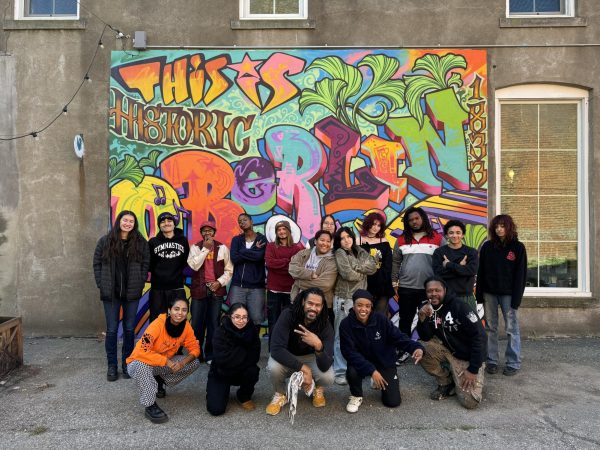“Hustlers” Promises Radical Feminism, Delivers Tired Tropes
I must have watched the trailer for Hustlers at least 10 times. I’ve been waiting for it’s release since the day it was announced, and I even showed up to the theater early to get the best seats. The first 30 minutes did not disappoint, delivering one of the sexiest movie openings I have ever seen. Jennifer Lopez first appears on the screen performing a confident, sexy, and unbeatable dance as Ramona, the star of the strip club. This five-minute showcase proves that J. Lo’s Ramona exudes power, and she knows it.
Another iconic moment follows this stunning entry when the two main characters, Ramona and Destiny, played by Constance Wu, meet on the roof. Ramona is wrapped in a beautiful fur and smoking a cigarette when Destiny — a young stripper from Queens who’s trying to make money to support her grandmother — walks up and asks for a light. Ramona then, quite literally, takes Destiny under her wing, enveloping her in the folds of her fur coat as the two women smoke together.
The story follows Destiny and Ramona as they deal with the economic fallout from the 2008 financial crisis. They eventually find a way to make money off of rich Wall Street men by drugging them and charging their credit cards. The two women depend on one another for survival, emotional support, and friendship, but when the film cuts to the present a reporter is exploring the dissolution of their friendship in the wake of criminal prosecution.
Several scenes of the film did represent the kind of radical female power portrayed in the trailers. For example, Cardi B’s lesson on lap dancing shows a transgressive joy for her job as a stripper and Lizzo’s bodysuit made of mesh crushes societal expectations for larger bodies. However, these moments are fleeting, and most of the movie didn’t live up to my expectations of radical feminism. Where I expected to see a fresh look at the lived experience of strippers and the ups and downs of their profession, the film delivers a view of strippers filtered through the male gaze.
Rather than fully exploring the complications of Destiny and Ramona’s friendship, Hustlers relies on a tired trope of women seeking fulfillment through motherhood. Destiny was abandoned by her mother as a child and therefore is drawn to Ramona as a maternal figure. Ramona has a daughter and at times treats Destiny like one too. Ramona’s maternal side seems to be written to soften her rough, money-minded, and volatile personality. Personally, I like Ramona’s roughness. It shouldn’t be necessary to characterize women as mothers to make them more relatable.
Additionally, while the cast features many women of color, the film avoids difficult conversations about race. For example, Ramona brings up the fact that Destiny has an advantage as a stripper because she is Asian, which hints at the problematic fetishization of Asian women, but the topic is never properly addressed. In fact, despite having two women of color in the lead roles and several others in supporting roles, Hustlers never actually talks about race or the particular consequences of whiteness in the spaces these women occupy. Since Hustlers deals with women who work in an industry that often degrades them, race has a relevant and important impact on these experiences that went un-discussed.
Further, Hustlers doesn’t challenge the conventional notions of what strippers should look like. While there is a transgender actress in the film and several overweight women, these characters are only in the film for a few minutes. The main troop of four women on screen — Ramona, Destiny, Annabelle, and Mercedes — are all cisgender, skinny, and attractive in the most conventional ways.
Hustlers was entertaining, funny, and sometimes heartwarming, but it was not groundbreaking. The film tried embracing radical ideas but could not commit to fully exploring them, ultimately returning to familiar territory to tell its story. It will always be fun watching a group of women take advantage of creepy men in order to get filthy rich. However, I would love to see more nuanced female relationships and bigger risks in terms of diversity. I recommend Hustlers, not for the radical female empowerment the trailers promised, but for Lizzo’s cameo, Cardi B’s stripping advice, Wu’s performance, and Lopez’s furs.







